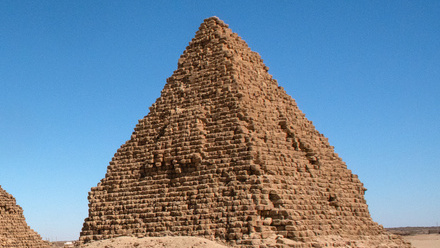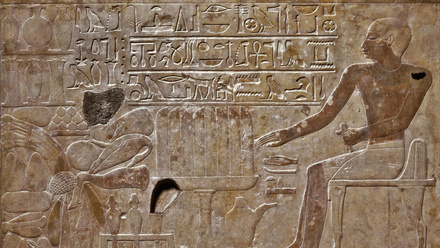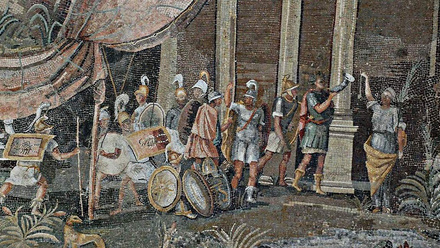Recordings will be made available for those unable to attend the live sessions!
In this interactive “Edible Egyptology” course, students will learn about the food and drink that the ancient Egyptians had on their dining table and will have the chance to re-create some ancient recipes at home if they wish.
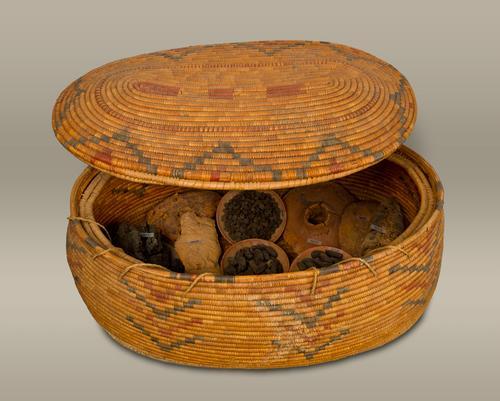
Large Oval Storage Basket (The Metropolitan Museum of Art, 36.3.57a, b)
Ancient Egypt, the 1,000 km long oasis formed by the flowing of the river Nile through the desert into the Mediterranean, was known to its people as Ta Mery, the Beloved Land. The Egyptians called themselves Blacklanders an allusion to the rich, dark soil, to whose fertility they owed the prosperity of their crops and economy. Although the Egyptians left no recipe books, we can still have a good idea of what the Egyptians ate and how they cooked them from archaeological evidence, tomb scenes and texts.
During our culinary course, we will examine the archaeological traces of Egypt’s food distribution, storage, and disposal sites. We will assess what evidence survives in the archaeological record and in texts for the people who toiled in the fields, distributed the grain, counted the cattle, and feasted during the temple festivals.
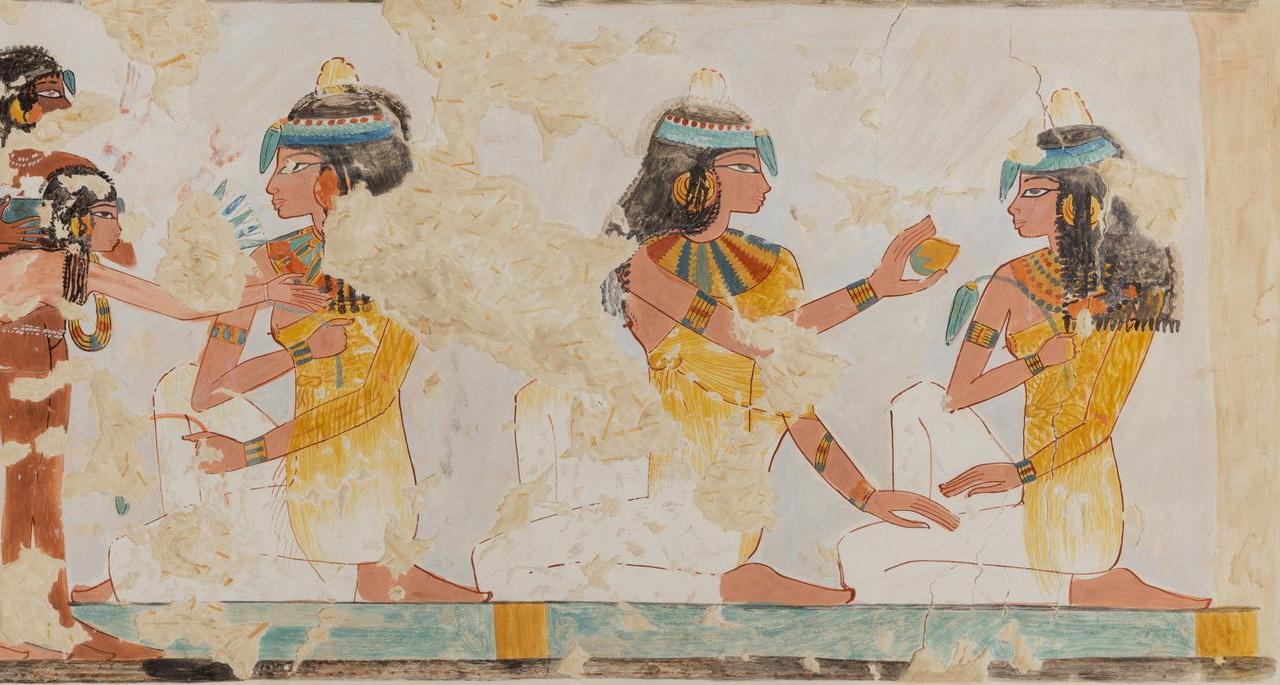
Women at a banquet (The Metropolitan Museum of Art, 30.4.92)
Students can each week if they wish, prepare an Egyptian snack or meal using the provided recipe cards using the key Egyptian ingredients of onions, garlic, beans, and bread.

This course is open to all interested and passionate about ancient Egypt and the ancient world, as well as those interested in ancient cooking. No prior knowledge of ancient Egypt or culinary studies is necessary, although a basic understanding of Egyptian chronology and how to safely chop an onion and use an oven would be helpful.

Women Preparing Food, Tomb of Djari (The Metropolitan Museum of Art, 31.6.1)
Course Outline
Please note that main content will be delivered between 18:00-19:30, though some optional participation (quizzes, Q&A, etc.) may continue beyond that time.
Thursday 29 February 2024, 18:00-19:30 (UK time)
Week One - The Culinary Starters
For our introductory week, we will cover the key concepts of culinary archaeology and the development of the cooking in Egypt. We will examine what evidence there is for cooking in the archaeological record, and how archaeologists have interpreted the surviving material.
Thursday 7 March 2024, 18:00-19:30 (UK time)
Week Two - Bread Week
For the second week, we will consider the importance of grain, granaries, and the Egyptian economy. The Egyptians had a regimented redistribution system built around the all-important bread (and not forgetting beer)!
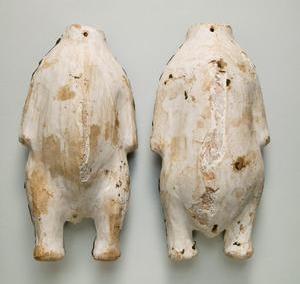
Food case probably containing a preserved pigeon (The Metropolitan Museum of Art, 19.3.289a, b)
Thursday 14 March 2024, 18:00-19:30 (UK time)
Week Three - The Main Course
What sources of protein did the Egyptians have on offer? Would they eat the usual meat and two veg as we might in western Europe? Did they use a knife and fork? In this week, we will also consider the Egyptian kitchen and examine the archaeological evidence for Egyptian cooking and its effects on house designs.
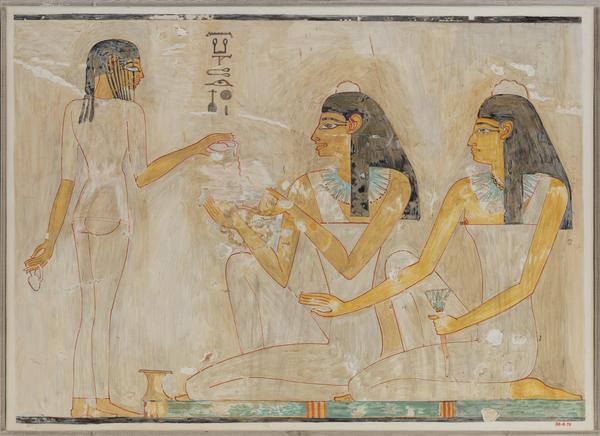
Women at a banquet (The Metropolitan Museum of Art, 30.4.78)
Thursday 21 March 2024, 18:00-19:30 (UK time)
Week Four - Feasting and Festivals
What did the Egyptians eat on their equivalent of New Years Eve? Like us, the Egyptians seemed to have loved a “good knees up” and had c.50 of them in an average year ranging from The Festival of Intoxication (Hathor) to The Festival of the Opening of the Year. This week, we will endeavour (virtually) to reconstruct the ancient Egyptian festival and see how they compare to their modern equivalents.
Thursday 28 March 2024, 18:00-19:30 (UK time)
Week Five - Dessert Week
Did the Egyptians have a sweet tooth? Did they eat the equivalent of the after-dinner mint and coffee? In this final week, we will turn our thoughts to the last course: dessert. What would the Egyptians use to sweeten their cakes? We’ll explore what insights we can glean from textual and iconographic sources from the Old Kingdom onwards.
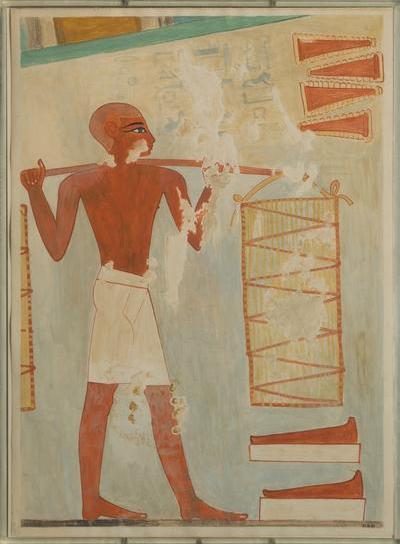
Man carrying loaves, Tomb of Rekmire (The Metroplitan Museum of Art, 31.6.31)
Booking and information
Register for your place in advance using the link below. After registering, you will receive a confirmation email containing information about your booking. Links for joining the event will be sent by email closer to the start date. If you do not receive your email, then please check your junk folders before contacting the Egypt Exploration Society. The course will be held on our Zoom platform and attendees will be able to interact by asking questions, using the chat and polls. It is not necessary to have a working webcam or microphone for this course. The online course will be complemented by Google Drive, where resources will be uploaded.
Please ensure that you have read our guide to attending EES online events before the course begins.


